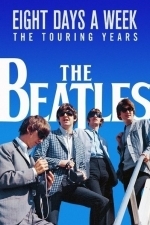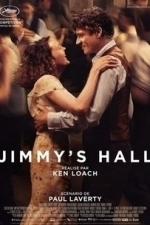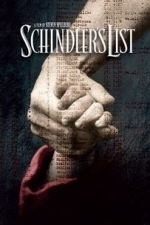
Grand Theft Auto: Chinatown Wars
Games and Entertainment
App
***ATTENTION*** IF YOU PURCHASED GTA: CHINATOWN WARS HD, PLEASE CHECK YOUR ITUNES PURCHASE HISTORY...
Daniel Boyd (1066 KP) rated The Beatles: Eight Days A Week - The Touring Years (2016) in Movies
Oct 24, 2017
It is a fantastic insight into what went on during the years of Beatlemania while the Beatles were on tour and what they were like as people in those more innocent days. The music is of course fantastic, but even for someone who isn’t a massive Beatles fan I think that this documentary is still relevant and tells of an important piece of recent history in an exciting, stylish way.
There are some gripes I have with the movie though, the first one being a case of some revisionist history. The only talk about the group taking any form of drugs was a blink and you’ll miss it mention of them smoking dope on the set of Help, there was no mention of them smoking a joint in the toilets in Buckingham Palace while waiting to receive their MBE’s, there was also no mention of the fact that John returned his MBE and they didn’t even mention the amount of acid they took whilst in India and in the later days. Also, all of John’s more offensive behaviour has been vastly censored and toned down. There is footage of the Beatles first American concert at the Coliseum in Washington D.C, where Paul introduces the band and asks the audience to ‘clap their hands and stomp their feet,’ as Paul is saying this John appears to be impersonating a handicapped person doing exaggerated clapping and stomping movements, which is something he did repeatedly during their first American tour, but in the film they cut away to the audience during this to avoid showing John being offensive. We also never see the footage from their Royal Variety performance, when John told the people in the poor seats to clap their hands and the rich people, including the Royal family, to just rattle their jewellery. I don’t know why they are trying to make John look like an innocent saint when he was never like that, he was always rebellious and cheeky and was never afraid to say what was on his mind. The second gripe I have is more of a personal one in that us hardcore Beatles fans were promised a story that had never been told and while there was some footage that I hadn’t seen before, I wasn’t exactly mind blown by the story that the footage told as there was very little in the film that I didn’t already know about. However despite these minor gripes the movie is fantastic, an immense story told by a master filmmaker about the greatest band in history, what’s not to love?

Photon Flash Player & Private Browser for iPad
Utilities and Productivity
App
+ "Photon browser is a powerful and versatile Safari alternative that excels in its Flash...

Tunable: Tuner, Metronome, and Recorder
Music and Utilities
App
◆ "The best tuner, metronome, and recorder on iOS and a pitch-perfect bargain for any musician."...
Gareth von Kallenbach (980 KP) rated Jimmy's Hall (2015) in Movies
Aug 6, 2019
The few that do come along almost certainly rate high on the scale of exceptional movies that one would want to see. I myself can’t remember a ‘bad’ Irish film. Perhaps one of the reasons for that is the fact that this country has a solid history of countless Irish immigrants coming here and helping to build the foundations for America. Well, today’s film for your consideration doesn’t go back THAT far. It doesn’t even take place in America. However, the history of Irish immigrants (specifically one immigrant) does play a role. Only it involves an Irish immigrant how came to America and then several years later returned to Ireland only to be forcibly deported back to America. I know I know. That explanation makes it sound like a comedy and although the film has many lighthearted moments, I can assure you it’s NOT a comedy. In fact, it deals with an influential figure in one of the more politically turbulent periods in Ireland’s history just before the beginning of the Second World War.
‘Jimmy’s Hall’ is a 2014 Irish-British drama directed by English television and film director Kenneth ‘Ken’ Loach. The film focuses on the events leading up to the deportation from Ireland of Jimmy Gralton, who led a precursor to Ireland’s communist party in the county Leitrim.
Starring Barry Ward, Simone Kirby, and Irish character actor Jim Norton, the film opens in 1932. Jimmy (Ward) has just returned to his home to help his mother tend the family farm after spending 10 years in the United States in the midst of the Great Depression coinciding with the establishment of a new government in the aftermath of the Civil War between pro-British and anti-British forces.
Reluctant to anger his old enemies, the church and the landowners who forced him to leave Ireland, but eager to meet the needs of the people of Leitrim, Jimmy (Ward) decides to reopen the ‘Hall’, a center for young people where they can meet to study, talk, dance, play music, learn to read, debate issues of the day. Free to all and open to anyone who wishes to learn while respecting the views and opinions of others, the ‘Hall’ is an immediate success. Not everyone is pleased to see Jimmy resuming his old activities. In particular the church and local priest (Norton) who see Gralton as not only a ‘bad influence’, but also as a follower of Stalin who as history knows sent countless millions (including religious leaders) to their deaths.
Despite the complaints and at times violent reactions on the part of the supporters of the church and the landowners, Gralton tries desperately to make them realize he has absolutely no connection to Stalin and has no desire to bring down the church. Only to better the situation for everyone. Jimmy even invites the local priest to take a leadership role in the Hall’s committee. In the end though, the fears of the church and the state go unchanged. Jimmy is a communist and although he has no connection Stalin the church and the government see them as one in the same. The police take Jimmy into custody at his family’s farm and forcibly deport him back to America even so much as denying him on last chance to see his ailing mother.
In education systems there are books and films which are considered ‘required reading’ or in this case ‘required viewing’. This film should be required viewing. It is not just an excellent film about a historical Irish political figure or as I mentioned earlier a film about a turbulent point in Irish history. It’s an example of the greater ‘world conflict’ between what became the western bloc and the eastern bloc. Both sides in that grater conflict saw each other the same way the two sides in the Irish countryside of the 1930s saw each other. The ones that meant well and only wanted to better the situation for everyone including themselves inspired fear in those who had power and those who had the power inspired fear in those who meant well. This movie showed that not all political figures are evil … nor are all religious figures. It’s the individual or several individuals within those groups that are reluctant to change.
I would highly recommend this film. Regardless of the content it’s an excellent film. If this film is as good as most films made in Ireland, they definitely need to start exporting them on a grander scale. I’d give this film 4 out of 5 stars.
This is your friendly neighborhood photographer ‘The CameraMan’ and on behalf of my fellows at ‘Skewed & Reviewed’ I’d like to say thanks for reading and we’ll see you at the movies
Emma @ The Movies (1786 KP) rated Schindler's List (1993) in Movies
Jun 22, 2019 (Updated Sep 25, 2019)
It pains me to say it but I think the negatives outweigh the positives on this for me. The sets are incredible though and the fact that they managed to get hoards of people working together is no easy feat. It's certainly an epic achievement.
I have spoken to a few people since seeing it and mentioned the fact that I didn't like it filmed as black and white, I've been surprised at how many condescending responses I had. "Black and white films are difficult for some people to get used to." "They're not to everyone's tastes." For the record I love black and white movies, the issue I have with this one though is that it's so sharp that at times it looks unnatural. The joy of black and white movies is the feeling of a little age to the film. Perhaps this is just the curse of the modern age, but all the shots look amazingly crisp. I know, how often does someone moan about having filming that's too good for a film?
"Remember to take some tissues!" was the response I got when I told people I was going to see it, me being a crier I heeded the warning. I was left mostly unmoved though. The statements of fact and the scenes at Auschwitz certainly made me pause for thought and brought a tear to my eye but the dramatised sections generally didn't hold a lot of impact.
When Schindler has his departing scene it really felt that it should have been more emotional for the viewer but it came across a little hammy. Neeson's acting had been relatively understated the whole way through and they chose that moment for him to depart from that?
Some moments in history only need the facts, and while creatively this was a masterpiece (certainly the music was) I didn't feel that it was possible to get the gravity of the situation. In this instance I would personally like to know the real accounts and that would be achieved better by reading some books on the subject of watching personal recordings from survivors.
What you should do
Most of you have probably already seen Schincler's List, if you haven't then you probably should despite what I said. Without films like this some of us would probably have no knowledge at all about such important moments in history.
Whether they're entirely accurate or not they open up curiosity to learn more.

Sleep Recorder Plus
Medical and Health & Fitness
App
This application consists of three modules: RECORDER, SMART ALARM, STOP SNORING. RECORDER Records...

Lonely Planet Best of Italy
Lonely Planet, Cristian Bonetto, Duncan Garwood and Abigail Blasi
Book
Lonely Planet: The world's leading travel guide publisher Lonely Planet's Best of Italy is your...

Lonely Planet Italy
Lonely Planet, Cristian Bonetto, Kerry Christiani and Abigail Blasi
Book
Lonely Planet: The world's leading travel guide publisher Lonely Planet Italy is your passport to...

For the Demented by Annihilator
Album Watch
Annihilator’s brand-new album “For The demented” promises to pack a premier punch....
Metal


